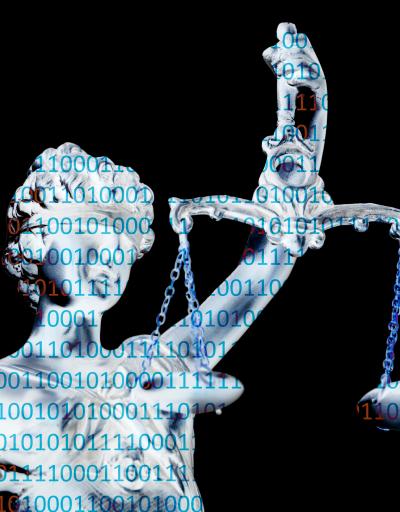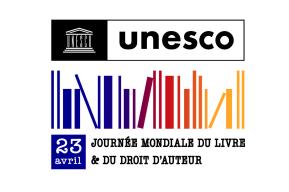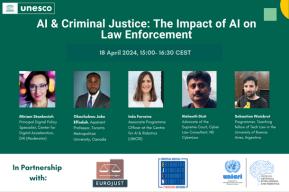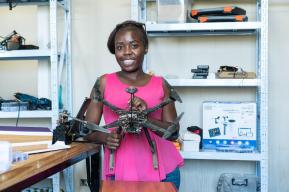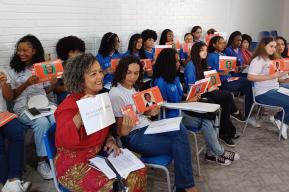Building on the Global Judges Initiative, UNESCO’s online course on Artificial Intelligence (AI) and the Rule of Law has reached over 4,500 judicial operators globally since its launch in March. How has this impacted judicial communities around the world?
The use of Artificial Intelligence in judicial systems across the globe has seen a rapid increase in recent years. From helping lawyers identify precedents in case law to predicting appropriate sentence duration and recidivism rates, such AI tools are becoming a permanent fixture in the way justice is administered in the 21st century.
However, these AI systems are often opaque – human-made yet not transparent due to their algorithmic structure – they are posing a threat to the principles of open justice and due process. Critically, this threat to fundamental human rights could be compounded if a second, adjacent challenge is left unaddressed: the need to close the knowledge gap of judicial operators regarding the AI tools they employ.
Responding to these needs, UNESCO, the Future Society, CETIC.br|NIC.br, IEEE and the National Judicial College launched in March 2022 a Massive Open Online Course (MOOC) on AI and the Rule of Law for judicial operators worldwide.
Judicial communities around the world have already started using the course for training, closing capacity gaps and exchanging knowledge.
How has the MOOC helped to build capacities?
Describing the judicial system in India, Nisheeth Dixit, Cyber Law Attorney of the Supreme Court of India, said that technologies for crime prevention, open-source intelligence and electronic evidence are widely used. “But as far as technology is concerned, the tools are provided by private sectors,” he said.
Mr Dixit completed the AI and the Rule of Law MOOC in April 2022. He highlighted topics covered by the MOOC that are “very important for further advancement of artificial intelligence in the judiciary” like the right to privacy, right to equality, as well as the real-world case studies that were featured.
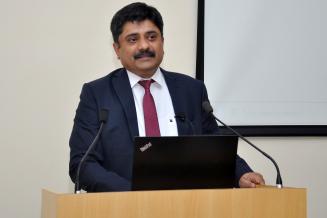
It’s a professional enrichment course for judges and as far as being a cyber attorney, I am now very well caught up with the latest technologies and their accordance with the laws.
How has the MOOC facilitated knowledge exchange?
According to Senior Magistrate Catherine Mburu from the judiciary in Kenya, “[the course] is an eye-opener to see how other jurisdictions are also dealing with the issue of AI and the rule of law.”

We have been trying to automate for the longest time and encountered many challenges. COVID-19 fast-tracked automation. There is a lot to learn and it’s good to hear from other jurisdictions what they’re doing, with best practices and examples.
For both Mr Dixit and Magistrate Mburu, more training on AI and the rule of law is welcomed.
“I think we should not stop here,” said Magistrate Mburu, “It’s a conversation we need to continue having. If we could try as much as possible reach out to as many jurisdictions as possible to cover America, Asia, the Pacific, the Caribbean and also in Africa, we get a broad picture of the issues of AI,” she added.
For Mr Dixit, courses for judicial officers on electronic evidence like cloud or network forensics would be useful. “How we can identify criminal identification tools and come up with risk assessment tools are a very important part,” he said.
How do the partners view their collaborative efforts in the field of AI and Law?
CETIC.br|NIC.br and the National Judicial College, United States have high hopes for the project.
The National Judicial College, United States, as a leading provider of judicial education in the United States, was “pleased to participate in these important initiatives involving artificial intelligence and its application to improving access to justice for all”. They hope that this capacity building initiative “will help judicial operators world-wide understand the benefits and risks of adopting AI in judicial contexts.”.
For Cetic.br, the Regional Center for Studies on the Development of the Information Society in Brazil, the MOOC "can help reduce the gap between research and adoption of AI so that its social, economic, cultural, and political implications caandn be better understood, monitored, and addressed.”
The reach of the MOOC underlines an important dem for AI capacity building in judicial communities worldwide. By offering accessible and adaptable training online, this project fosters more inclusive AI capacity-building and development in the legal field.
The MOOC on AI and the Rule of Law is developed by UNESCO and The Future Society, with the support of Cetic.br|NIC.br, the National Judicial College, and IEEE SA. It was made possible by the kind contributions of the UNESCO Multi Donor Programme on Freedom of Expression and Safety of Journalists (MDP) and the Open Society Foundations.


